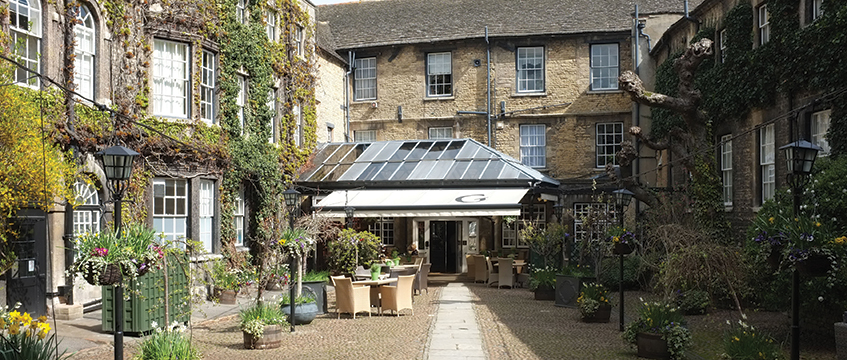Allyson Colby analyses a clash of easements in a congested cul-de-sac.
Key points
- Prescriptive rights cannot arise if there is another lawful and reasonably possible explanation for long user
- Insofar as a landowner had tolerated illegal parking, such toleration did not confer a legal right to park
- It is perfectly possible for a landowner to grant rights that are subject to pre-existing easements
- Rights subsequently granted that are inconsistent with pre-existing easements will not be effective as against the owners of such easements insofar as they conflict with them
The George Hotel in Stamford, Lincolnshire, was once an important coaching inn for travellers on the Great North Road, and it remains popular today despite the advent of modern forms of transport. But the ubiquity of the motor car, and the consequential demand for on-street parking close to homes, has created problems that triggered the litigation in Poste Hotels Ltd v Cousins [2020] EWHC 582 (Ch); [2020] PLSCS 50.
The case concerned competing prescriptive rights over a private cul-de-sac. The owner of a house in the cul-de-sac claimed that she had acquired a prescriptive right to park on the roadway. But the owner of the hotel claimed to have the benefit of a prescriptive right of way through the cul-de-sac to its laundry and complained that it had been having difficulty in obtaining access because the defendant had started parking her car in front of its doors. So it sought an injunction to restrain any further interference with its right of way, and damages for nuisance.
Preliminary point
The owner of the hotel argued that it would have been impossible for the owner of the cul-de-sac to grant the defendant a right to park in it because any such grant would necessarily have been incompatible with its pre-existing right of way. But the High Court disagreed.
The judge ruled that the owner of the cul-de-sac was perfectly competent to grant a right to park that was subject to the existing right of way. If the owner of the cul-de-sac had purported to grant parking rights that were inconsistent with the right of way to the laundry, the parking rights would not have been effective as against the owner of the hotel insofar as they prevented it from obtaining access to and egress from its laundry. But the grant of a right to park in the cul-de-sac was capable of taking effect to the extent that it was consistent with the pre-existing right of way.
Prescription
Prescriptive rights are obtained as a result of uninterrupted use over a period of not less than 20 years. The legal term for use that qualifies is “user as of right”. But it is sometimes more helpfully described as “user as if of right” – ie use of land, which is actually a trespass, which has not been contested by, or hidden from, the landowner. So the judge turned next to the question of whether the car parking satisfied these conditions.
The owner of the George Hotel drew the judge’s attention to Lord Denning’s explanation of the law in Davis v Whitby [1974] Ch 186. In cases of long-established use, the court will strive to uphold it and will look for a legal origin for the use in order to bring the legal position into line with reality. The law achieves this by presuming that the owner of the servient land must have granted an easement at some point in the past. But, as Lord Lindley explained in Gardner v Hodgson’s Kingston Brewery Co Ltd [1903] AC 229, this legal fiction cannot be applied where there is another reasonably possible explanation for such use. Therefore, if the user in question could have had another lawful origin, it is not “user as of right”.
There was evidence to suggest that members of the public had parked in the cul-de-sac while shopping. So the owner of the hotel suggested that the defendant had been using the cul-de-sac in her capacity as a member of the public – not as the owner of a property there. Or, to put it another way, it claimed that there was an alternative lawful origin for her practice.
But, although it was widely used for parking, the cul-de-sac was a private roadway. So there was no general right to park there, and use as a member of the general public did not provide a lawful origin for the user relied on. In addition, members of the public could not claim that they had acquired prescriptive rights to park because there is no such thing as an “easement in gross” and they did not own land nearby to which rights to park could be attached.
Furthermore, the court did not consider it reasonable to hold that the defendant had parked in the cul-de-sac only as a member of the public. The owner of the hotel had accepted that she had acquired rights of way over the cul-de-sac. So, when the defendant drove into the cul-de-sac, she did so in her capacity as the grantee of an easement. And, because rights to pass and repass include a right to load and unload, it would be unrealistic to distinguish between her actions when exercising her rights of way and when parking. Therefore, the only lawful origin of her user was the notional grant of a right to park.
Right to be a nuisance
Did the defendant have a right to park in front of the laundry? She argued that a substantial interference with an easement is a nuisance and that she had acquired a prescriptive right to commit such a nuisance. But the judge rejected the defendant’s claim because she had not interfered with access to the laundry until comparatively recently.
The decision enables both parties to continue to exercise their prescriptive rights, but leaves the defendant to compete for a parking spot elsewhere in the cul-de-sac.
Allyson Colby is a property law consultant










